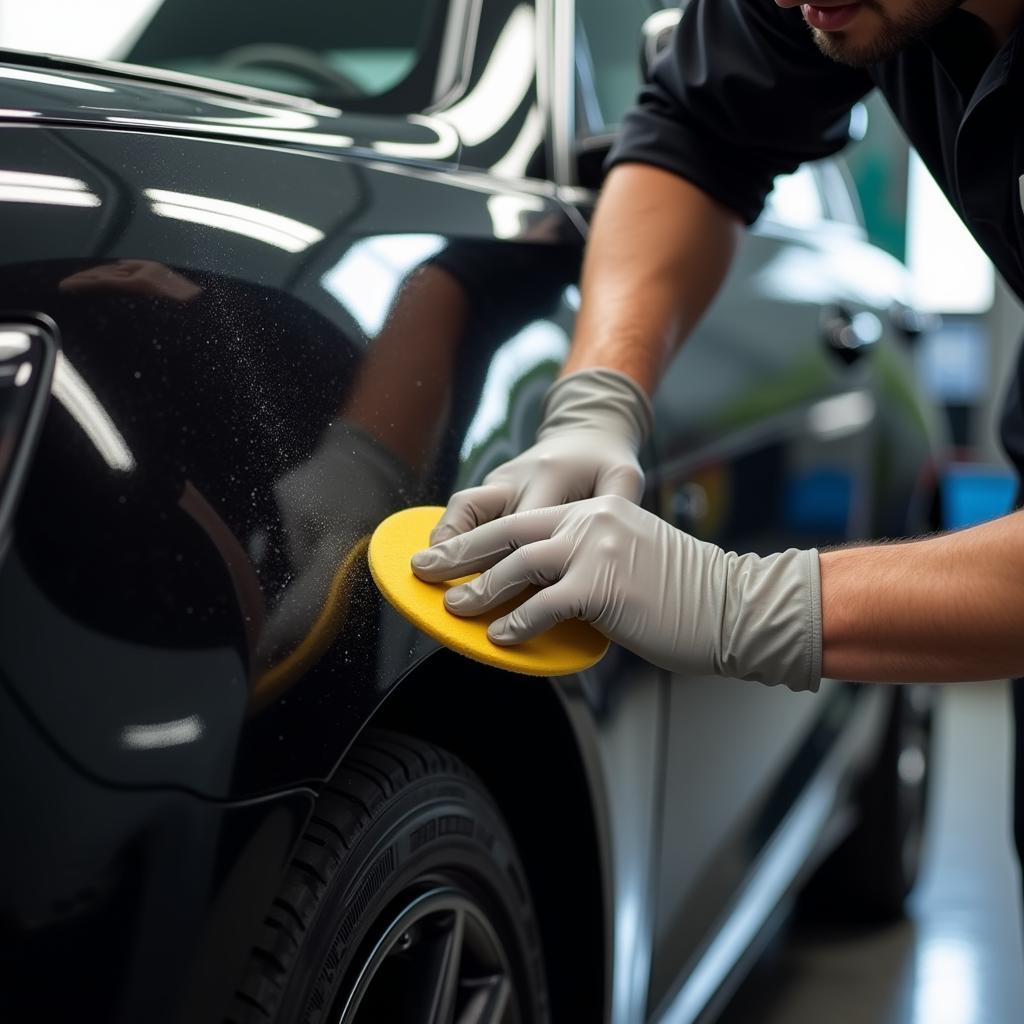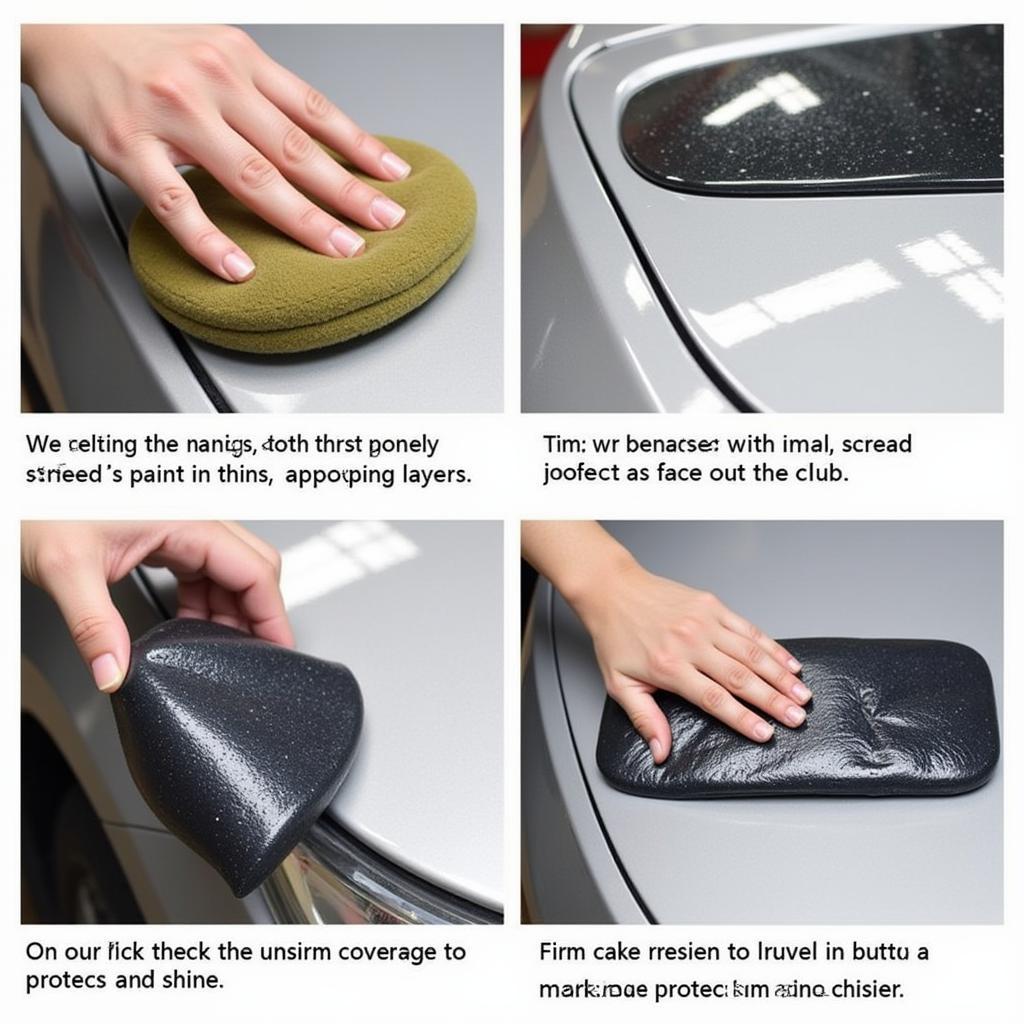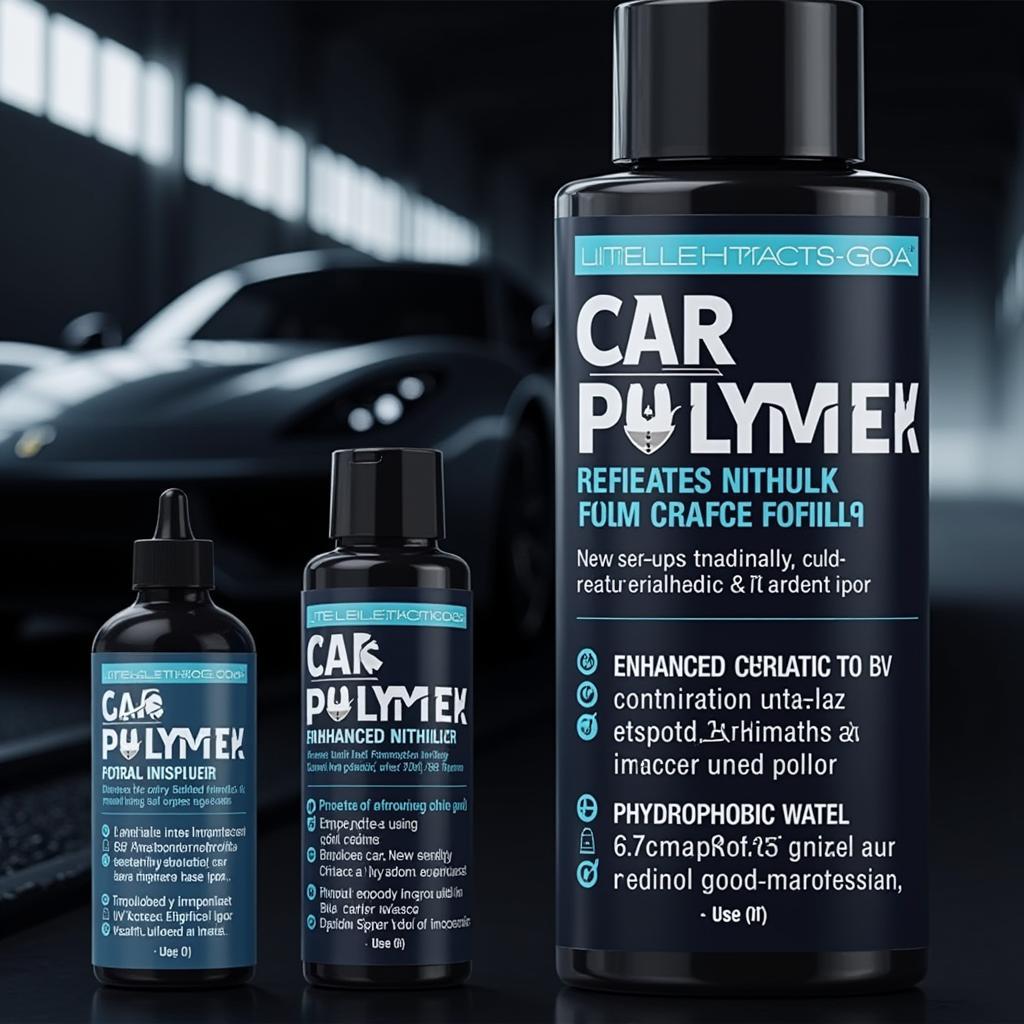Car polymer that auto detailers use offers superior paint protection and shine compared to traditional waxes. This guide dives deep into the world of car polymers, exploring the types, application techniques, and benefits that make them a favorite among professional detailers.
Understanding Car Polymers
Car polymers, also known as paint sealants, are synthetic protectants designed to create a durable, hydrophobic barrier on your car’s paint. Unlike carnauba wax, which is a natural product, polymers are formulated in labs, offering greater longevity and resilience against environmental contaminants. They provide a glossy, slick finish that repels water, dirt, and UV rays, keeping your car looking cleaner for longer.
Types of Car Polymers
Several types of car polymers are available, each with unique properties and benefits:
- Synthetic Polymer Sealants: These are the most common type, providing excellent protection and shine. They are typically easy to apply and offer good durability.
- Ceramic Coatings: These offer the highest level of protection and durability, creating a semi-permanent bond with the paint. They require more specialized application techniques.
- Hybrid Polymer-Wax Blends: These combine the benefits of both polymers and waxes, offering a balance of protection, shine, and ease of application.
Why Auto Detailers Prefer Car Polymers
 Auto Detailer Applying Car Polymer
Auto Detailer Applying Car Polymer
Auto detailers choose car polymers for a multitude of reasons, prioritizing their effectiveness and client satisfaction:
- Durability: Polymers offer extended protection compared to waxes, often lasting for several months.
- Hydrophobic Properties: The water-repelling nature of polymers makes washing and drying easier, minimizing water spots.
- UV Protection: Polymers shield the paint from harmful UV rays, preventing fading and oxidation.
- Gloss Enhancement: Polymers create a deep, reflective shine that enhances the car’s appearance.
- Ease of Application (for some types): Many polymer sealants are user-friendly, requiring minimal effort to apply.
Applying Car Polymer Like a Pro
 Applying Car Polymer with Applicator Pad
Applying Car Polymer with Applicator Pad
Achieving professional-level results with car polymer involves careful preparation and application:
- Wash and Decontaminate: Thoroughly wash the car and remove any contaminants like iron deposits or tar.
- Clay Bar Treatment (Optional): Use a clay bar to remove embedded contaminants that washing might miss.
- Polish (If Necessary): Polish the paint to correct any imperfections and create a smooth surface for the polymer to bond to.
- Apply the Polymer: Use a foam applicator pad to apply a thin, even layer of polymer, working in small sections.
- Buff to a Shine: After the appropriate curing time (check product instructions), buff the polymer with a microfiber towel to reveal a brilliant shine.
Choosing the Right Car Polymer
With so many options on the market, selecting the right car polymer can be daunting. Consider the following factors:
- Durability: How long do you need the protection to last?
- Shine: Do you prefer a warm, glossy shine or a more reflective, glass-like finish?
- Ease of Application: Are you comfortable with more complex application processes, or do you prefer a user-friendly option?
- Budget: Car polymers range in price, so consider your budget when making a decision.
The Future of Car Polymer Technology
 Advanced Car Polymer Formula
Advanced Car Polymer Formula
The world of car polymer technology is constantly evolving, with new formulations and application techniques emerging regularly. We can expect to see advancements in areas like:
- Self-Healing Polymers: These innovative polymers can repair minor scratches and swirls on their own.
- Graphene-Infused Polymers: Graphene adds further durability and hydrophobic properties to car polymers.
- Environmentally Friendly Formulations: Manufacturers are increasingly focusing on developing eco-conscious polymer options.
Conclusion
Car polymer that auto detailers use represents a significant advancement in car care, providing superior paint protection and shine. By understanding the different types of polymers and following proper application techniques, you can achieve professional-level results and keep your car looking its best for years to come.
FAQs
- How long does car polymer last? Most car polymers last between 3-6 months, depending on the product and environmental factors.
- Do I need to wax my car after applying car polymer? No, waxing is not necessary after applying car polymer.
- Can I apply car polymer myself? Yes, many car polymers are designed for easy DIY application.
- How often should I apply car polymer? Apply car polymer every 3-6 months, or as needed.
- What’s the difference between car polymer and ceramic coating? Ceramic coatings offer more durable and longer-lasting protection than traditional car polymers.
- Can car polymer be applied to all paint colors? Yes, car polymer is safe and effective for all paint colors.
- How do I remove car polymer? Car polymer can be removed with a polishing compound.
Need help? Contact us via WhatsApp: +1(641)206-8880, Email: [email protected]. We have a 24/7 customer service team.

Leave a Reply